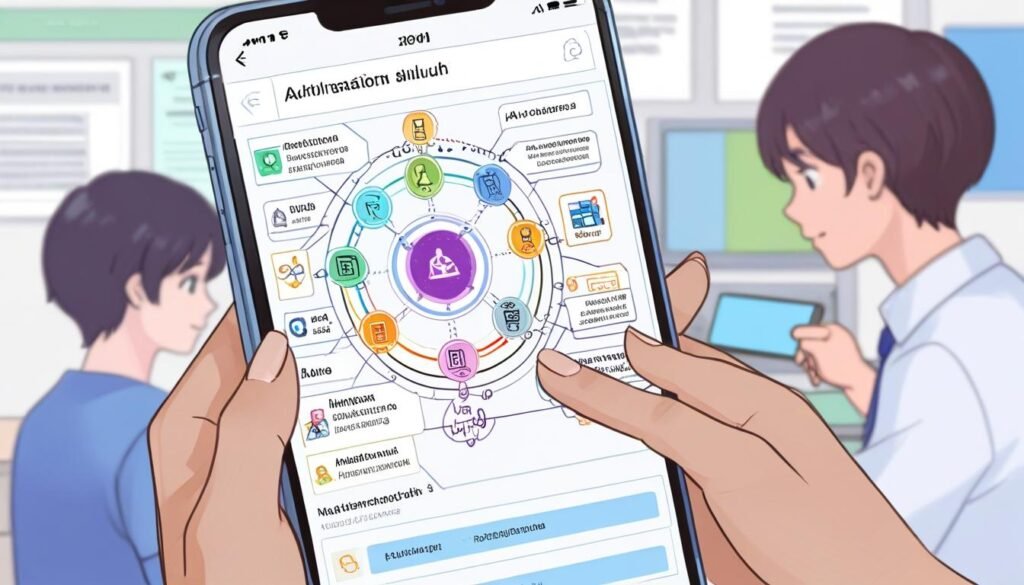The integration of AI and machine learning is redefining the eLearning sector, creating adaptive and personalised educational experiences that meet individual student needs.
In the evolving landscape of education, the integration of Artificial Intelligence (AI) and Machine Learning (ML) technologies is set to redefine the eLearning industry. These advancements have begun influencing how learning is delivered, creating more personalised and efficient educational experiences tailored to individual student needs.
The interplay between human intelligence and AI lies at the core of this transformation. Rather than replacing educators, AI aims to augment their capabilities, enabling them to deliver content more effectively. By leveraging AI’s data-processing prowess, educational platforms can now provide bespoke learning materials based on each student’s unique requirements. For instance, AI can assess a student’s progress, pinpoint difficulties, and suggest customised resources to help overcome specific challenges. This symbiosis fosters a more adaptive and supportive learning environment.
A major contribution of AI and ML in education is their ability to personalise learning paths. Unlike traditional methods that offer a uniform curriculum, AI-driven systems are capable of evaluating individual learning styles and preferences. They adjust course content dynamically to suit each learner’s progression. If a student demonstrates advanced understanding, the system could present more complex tasks. Conversely, if a student struggles, it might provide additional resources or alternative explanations. This tailored approach not only enhances engagement but also boosts retention, as learners advance at their own pace.
Moreover, the proliferation of mobile devices has ushered in a new era for eLearning, making education more accessible and flexible. With AI and ML integration, students can now engage with learning materials and attend virtual classes directly from their smartphones or tablets, no matter their location. AI-powered applications on mobile platforms offer real-time feedback, enabling learners to rectify errors immediately and maintain learning continuity across devices. This indicates a future where learning seamlessly fits into students’ lives, offering unprecedented accessibility.
In content creation and curation, AI has made significant headway. It automates the generation of interactive quizzes, flashcards, and summaries, ensuring content remains current and relevant. Furthermore, AI curates information, filtering out unnecessary data to focus learners on essential content. Natural Language Processing (NLP) technology enhances interaction in AI-powered tools, allowing students to pose questions and receive immediate answers, akin to having a tutor on call—a step towards more interactive learning experiences.
AI’s utility extends beyond academic instruction to streamline administrative tasks, often seen as burdensome to educators and institutions. AI solutions can automate grading, attendance monitoring, and course scheduling, allowing educators to concentrate more on teaching. Grading automation provides faster, unbiased feedback, and AI tools can analyse student performance patterns to preemptively address issues like declining grades or disengagement.
Gamification in eLearning, augmented by AI and ML, applies game-like dynamics to create engaging learning experiences. By analysing student interaction with game components, AI can personalise gamified learning, adjusting challenges or rewards to maintain motivation. This strategy keeps students engaged by adapting to their personal learning trajectories, promoting continuous learning through positive feedback.
As AI and ML become more entrenched in eLearning, organisations seeking to capitalise on these technologies must recruit skilled developers in these fields. The process can be challenging, particularly for newcomers. Hiring approaches include using niche job platforms that attract specialist talent, testing candidates for problem-solving and algorithmic knowledge, and partnering with AI/ML development agencies. A focus on cross-disciplinary skills is also crucial, ensuring developers understand educational principles alongside their technical expertise.
Looking to the future, AI and ML promise to bring about even more advanced educational tools and environments. Potential innovations include virtual tutors, AI-driven simulations, and intelligent assessments, all contributing to hyper-personalised learning experiences. Increased integration of these technologies into mobile platforms is expected, broadening the reach of eLearning solutions and offering quality education to students in remote areas.
Overall, as the eLearning sector continues to incorporate AI and ML technologies, the conjunction of human insight and machine intelligence promises to revolutionise how educational content is delivered and consumed, preparing organisations for a future of cutting-edge educational experiences.
Source: Noah Wire Services


